5 Best TV Shows for Learning to Speak English

Let's face it. It's 2017 and we all have cell phones, PCs, tablets, etc. – you name it! But, apart from all of that, we all share one particular guilty pleasure – devoting too much of our free time and productivity to watching TV shows, whether it be on television or online. This actually happens more than some of us realize. Instead of being another couch potato in the bunch, why not try to learn from each TV show you watch?
Sounds boring, I know, when it really isn't. You will still be doing the same old thing, except that now you will be aware of the language learning benefits it has for your knowledge of English. To save you the trouble, we have accumulated all of our experience and research into one big pile of language learning information and boiled it down to several unique TV shows that do more for your language learning than you might realize. Keep in mind, there are no copycat series on this list, so be prepared for some classics, as well as some newer ones that might surprise you for being ranked so high on the ladder.
That being said, this is our top 5 of the absolute best TV shows that will help you learn how to speak English better and bolder:
5. Mr.Robot
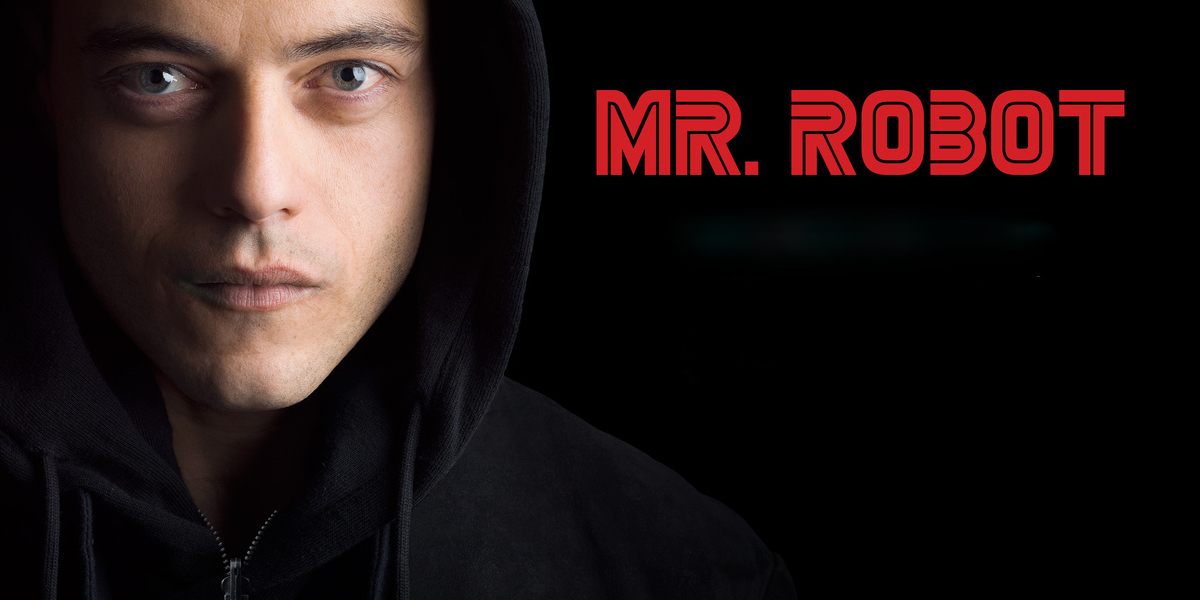
At number five, we've got the IT-centric blockbuster ''Mr.Robot''. The trippy series is a treasure chest for computer-savvy individuals, although it caters to basically any audience with a well-crafted storyline that is levels above ''The Da Vinci Code'' (there, I said it). Although one might infer that a fairly advanced level of English knowledge is required to do the show justice, I know people who don't know what a thumb drive is and yet consider the show a masterpiece. The following excerpt presents a unified form factor for most of the show's episodes in terms of communication and language use.
Season 1, Episode 7 ''eps1.6_v1ew-s0urce.flv'':
I quote, "The US contingent "of the hacker group, fsociety, has remained quiet "since the upheaval inflicted upon the world's largest multinational conglomerate.
"Secretary of Homeland Security Jeh Johnson "released a statement today stating that "These groups lack the resources and knowledge of the US cell "to successfully mount an attack."
Yeah, so?
You gotta get the Dark Army back.
Dude, I've been trying.
How many times do you want me to hack him? Do you know how hard hacking a hacker is? Cisco switches OSs like all the time.
Darlene, we need one meeting.
Yeah, well, I've been using Cisco's handle to send requests for the past month.
I got nothing.
Plenty of drama, hackathon, and life lessons vocabulary, for the lack of a better term – that is what this show is all about. Quite rarely do I find myself challenged with understanding vocabulary in context in a TV show but this one really pushes the envelope in that regard and its viewers to the limits (in a good way, though). Once you get a swing of how the characters actually communicate – all the numbers, codes, etc. – this show really gets you going to leap to the next level of your vocabulary prowess.
4. The Big Bang Theory
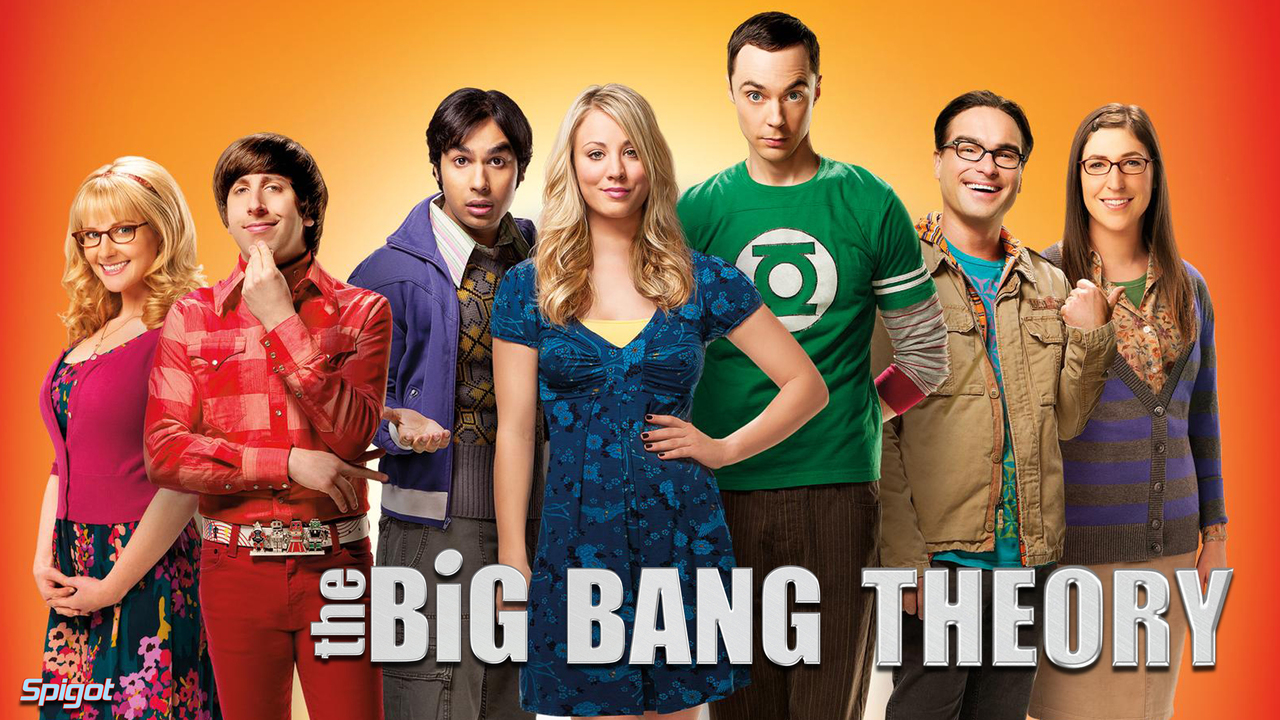
One of the shows that have definitely been on everyone's radar for at least some time during this decade is ''The Big Bang Theory''. The show's comical approach to dealing with complicated scientific issues and breakthrough discoveries is only further backed up by the cast that have simpy been born to play the roles that assemble the show's tandem in charge of all the fun. Seldom boring and always funny, the show packs some major tongue-twisting analogies and otherworldly vocabulary that even I have to obersve from a distance until I get a full swing of the what exactly is going on at the moment. It is exactly this powerful utilization of everything that the English language has to offer that has led the show's creators (and audience) to perfecting the ''why be simple when you can be complicated'' mantra. However, instead of choosing an example of such a high caliber, I decided to introduce you to the show in far simpler manner, as shown in the excerpt below.
Season 6, Episode 8 ''The 43 Peculiarity:
What are you drawing over there?
A hypothetical containment field for a Frisbee-sized wormhole that could serve as a portal to a parallel universe.
Oh, you silly doodlebug. You know, a lot of scientists believe that making contact with other life-forms would probably not end well for us.
It's a Frisbee-sized wormhole, Leonard.
...
Have you guys ever noticed that Sheldon always disappears every day at 2:45?
Really?
He probably just goes to the bathroom.
Actually, no, he goes to the bathroom at 8:00 a.m. with optional follow-ups at 1:45 and 7:10 on high-fiber Fridays.
It's sad that you know that.
Oh, that's just the tip of the sadness iceberg.
There is highly advanced English vocabulary in regards to the science involved here, such as ''hypothetical containment field'', ''parallel universe'', and ''wormhole''. Nonetheless, through the usage of fanciful expressions and coinages such as ''silly doodlebug'' and ''Frisbee-sized'', it becomes less of a strain for the general audience that is really not that much into science. Furthermore, even though the last line of the excerpt is about one of the characters reaching ''the tip of the sadness iceberg'', it's still comes across as whimsical as ever, making it very easy to understand and infer the meaning from context without having to resort to a dictionary for even the beginner-level language learners.
3. CSI (All Inclusive)
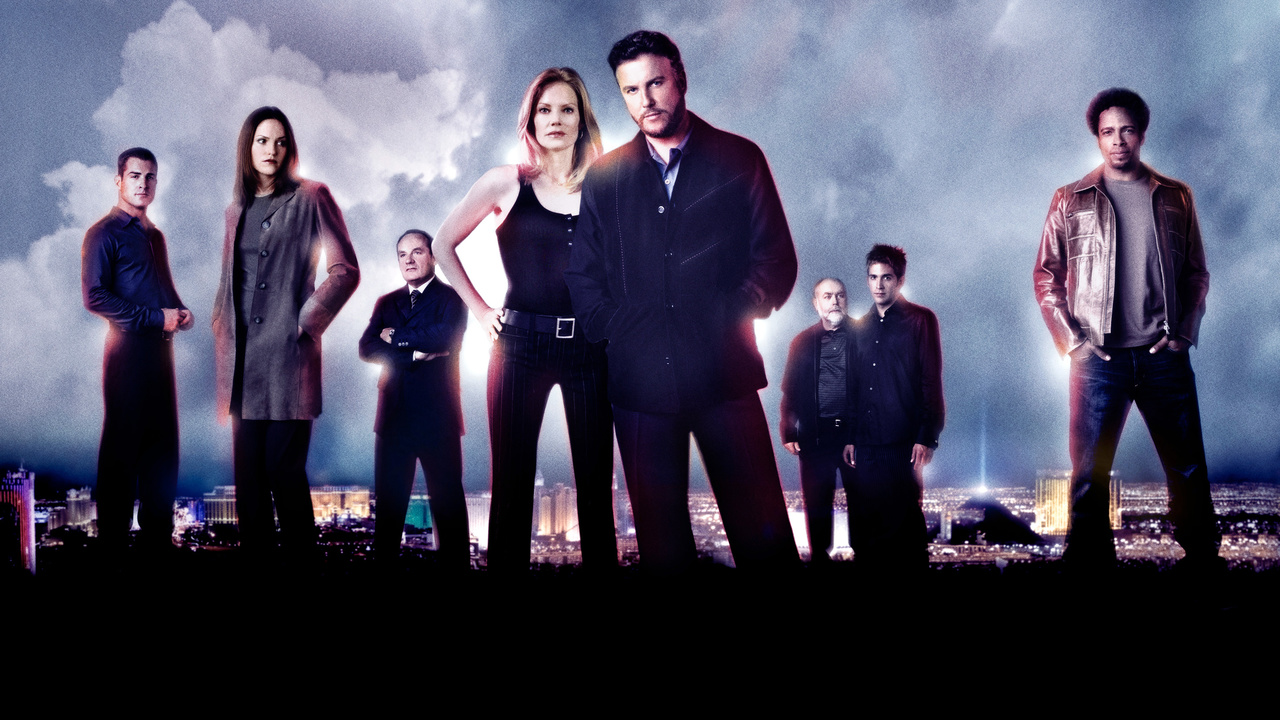
As a high school student with a pretty fair knowledge of English, I remember hearing about ''skin cells'', ''autopsy'', ''coroner's reports'', and stuff for the first time. I had no idea what these were! Even though today we have at least a dozen of CSI shows, no one can take away the impact each of these shows had, with crime series being one of the most coveted TV show genres in the world right now. Combining niche-specific vocabulary with police jargon and psychotic revelations, each of these shows is a gold mine for English language learners, with Horatio Caine making even the toughest of police jobs probably the coolest one in the world. Here's a perfect example of that.
''CSI: Miami'' Season 1, Episode 3 ''Wet Foot, Dry Food'':
Horatio Caine: Gentlemen, may I?
Lawyer: Be kind, Horatio.
Horatio Caine: As always. All right, now, Pedro, the gun we found in your room has tied you to two murders.
Lawyer: But possession doesn't make my client the killer.
Horatio Caine: We also have your skin cells on the tourniquet you used.
Lawyer: ALLEGEDLY used.
Horatio Caine: Allegedly used. [turns to the Lawyer] Now, are you going to rebut everything I'm saying?
Lawyer: Yes.
Horatio Caine: Excellent.
Here we find a police interrogation in full effect - a prime example of a passive-aggressive conversation in English that textbooks simply cannot teach or show to the fullest extent. Moreover, we can find some CSI-specific words such as ''tied to (a crime)'', ''skin cells'', and ''allegedly''; all of which have become very useful for students and teachers alike in a regular classroom setting in the last 5-10 years due to the popularization of crime series worldwide. You may have your favorite CSI sequel, but one they all have in common is their impeccable use of collocations that are mostly related to body parts and crimes, interrogation techniques, and cool lines or punchlines uttered by the protagonists every now and then.
Note:
While I do condone the fact that the CSI shows are classics compared to the myriad of crime series out there today, I can't help but reminisce of the 90’s when ''X-Files'' was all the rage. If you've ever asked yourself about what exactly started this swarm of crime series that we have today, it's the ''X-Files'', without a doubt. It's the predecessor to the modern-day crime series and one of my most abundant sources of new English vocabulary back when I was a kid. It was the first time I heard the words ''extraterrestrial'', ''paranormal'', and anything pysche-related; all of which are now thrown around by even the youngest of learners simply because they hear the word on any of the gazillion crime series on TV today.
Further down the list, we meet our top 2 contestants...
2. The Blacklist
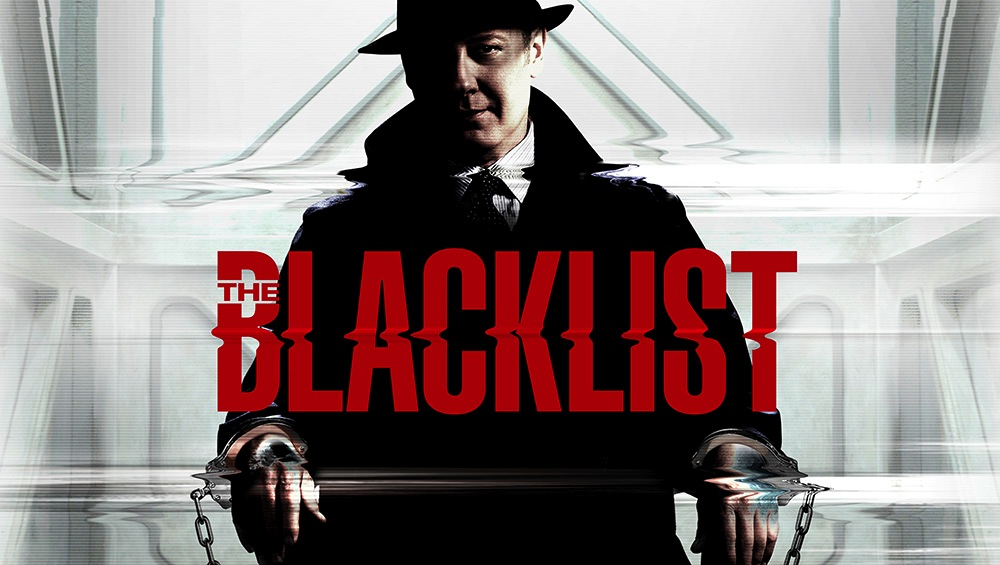
Just an inch shy off the throne, we have Mr.Rhetorical, Poet Crime Lord, and of the best characters on TV ever created – Raymond Reddington. Even though ''The Blacklist'' is famous for its plot and twisting the FBI's tradition of catching criminals, the show's protagonist is solely responsible for making it not just another Crime/Drama/Mystery show, but a giant well of innuendos, metaphors, and entendres that are every so often most perfectly combined in a single sentence uttered by the main character. I literally pause the show for a few seconds every single time he is about to face a rival criminal just to prepare myself for the avalanche of poetry combined with perfect language structure to be consumed and properly understood by me. Here is one such example from Season 1's Episode 4, ''The Stewmaker (No.161)'':
A farmer comes home one day to find that everything that gives meaning to his life is gone. Crops are burned, animals slaughtered, bodies and broken pieces of his life strewn about. Everything that he loved taken from him - his children. One can only imagine the pit of despair, the hours of Job-like lamentations, the burden of existence. He makes a promise to himself in those dark hours. A life's work erupts from his knotted mind. Years go by. His suffering becomes complicated. One day he stops - the farmer who is no longer a farmer - sees the wreckage he's left in his wake. It is now he who burns, he who slaughters, and he knows in his heart he must pay.
This isn't a TV show script; it's storytelling at its finest; poetry in motion at its best. It is exactly this nitpicky approach to using just the right amount of words to spice things up even in the most simplistic of settings which makes for a great show with an ''elite'' use of the English language along with some phenomenal acting. If the excerpt above raises your inner language learner curiosity and/or compels your hand to reach out for a dictionary, it is exactly why this TV show is no.2 on our list.
1. Suits
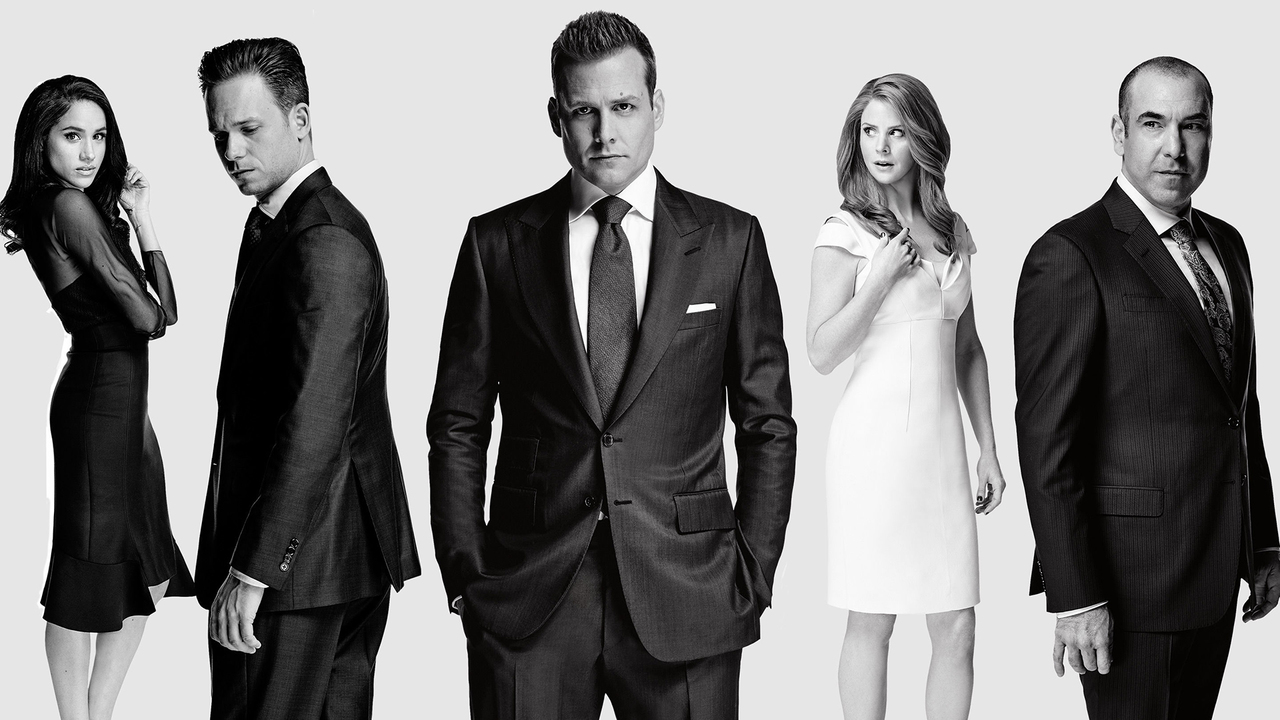
Apart from being one of the highest-rated TV shows of the last decade and bringing us what is arguably the greatest on-screen duo of all time in the form of Harvey Specter and Mike Ross, ''Suits'' pushes the boundaries of language usage and educating its audience about the law season after season. It was in my junior year at college when I was introduced to the show and trust me on this: I have learned more witty punchlines and comebacks, law terminology, and proper sentence structure in the English language (both American and British) just by watching and analyzing the show than in all my four years of college. And my major was in English Language and Literature! This only goes to show the quality of writing behind the scenes, giving English language learners all the more reason to tune in and become a Suitor forever.
I still remember having to research the word ''subpoena'' simply because it was thrown around the show so much and I had no idea how to spell the word, let alone what it meant. I literally Googled ''sapeena'' and ''sapinah'' Yes, that's right.
sa - pee - na
Silly me. Good old times. Thanks, Suits!
Please, carefully review the following sample by the show's most intriguing and outspoken character, Louis Litt, in ''Bad Faith'', episode 9 of the show's third season:
Louis Litt: I didn't even like playing nice in the sandbox.
Katrina Bennett: Someone has better sand toys, you take them.
Louis: Exactly.
Katrina: And you don't ask Bolshoi ballerinas to dance the tango.
Louis: Pfft! That would indeed be blasphemy.
Katrina: If Jessica wants compromise, she should hire a mediator, not a gladiator.
Louis: Except, Jessica doesn't want compromise. She wants a stone-cold killer to do one thing and one thing only.
Katrina: And what is that?
Louis: Not to lock client allocations until Harvey lands Samsung.
Katrina: Then give me an order.
Louis: Your order is to not let my inner gladiator get past my outer negotiator.
Katrina: That's not going to be easy, Louis. You're like the Hulk. Once you get enraged, there's no going back.
Louis: Though your description of both my temperament and physique is accurate, the one thing that I have on my side is that I have no personal animus against the other side. Nesbitt.
Nigel Nesbitt: Litt.
Louis: I see you're wearing your checkered suit with your crimson power tie.
Nigel: You see correctly.
Louis: Looks like you came to play hardball.
Nigel: I didn't come to play anything, I came to win.
Louis: Well, I'm not here to win. I'm here to make sure we hammer out a fair agreement.
Metaphors on metaphors on metaphors! This is why most the show's audience is hooked to it. Notice how the color ''crimson'' is connected to ''power''. Once you dig deeper into the show, you can see that mostly being true, as crimson is an extremely frequent color of choice in the show for power lawyers. On the other hand, ''to land'', in this case, doesn't indicate ''to bring someone down to earth'', but to ''sign'' or ''take on'' as a client. What is more, pay close attention to the usage of ''hammer out'' in regards to ''playing hardball''. The amount of double entendres being thrown around is simply ridiculous! This particular excerpt alone provides enough material for a language analysis white paper. The ''Suits'' writers are unequivocally top-tier (both expressions I learned through the show)! Hooray!

So, what are some of your favorite TV shows? Do tell.
But in doing so, keep in mind the language learning benefits that these shows bring to the table. If it's mostly entertainment and action without having to occasionally flip a few pages in the dictionary, you should probably rethink the idea of learning English through television, for that matter. As language learners, we need to use up every piece of information to the best of our abilities. I've always said this and I always will:
Education does not stop beyond the classroom walls.
It is up to us to determine the far end of our learning outcomes. How do you do that? Take a pen and paper. Write down your current level of English (approximately) and write down your desired goal. Then, write down the names of your favorite TV shows, or at least the ones you watch the most. Rank them according to their language learning benefits for you. Do they meet your expectations?
Yes? Great for you. It means you're utilizing what is outside of the classroom as much as you can to benefit your English language learning process. On the other hand, if the answer to the question above is ''no'', give our top 5 a shot. I promise you won't be disappointed. Enjoy the series!
